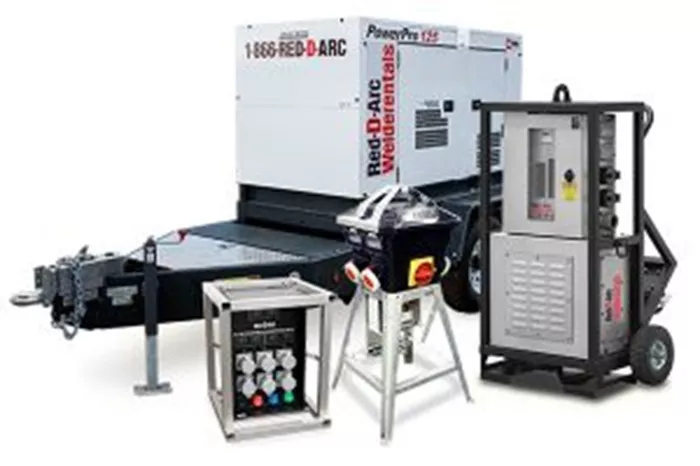Power outages can bring worksites to a standstill, halting construction projects and disrupting operations. To avoid costly downtime, many businesses rely on backup generators—whether purchased or rented—to keep essential tools and equipment running. Red-D-Arc Welderentals, a provider of industrial power solutions, recently shared key considerations for selecting the right generator.
Understanding Generator Types and Their Uses
Generators vary in power output and design to meet different worksite needs. Red-D-Arc offers three main categories:
Diesel Container Generators – Designed for high-power demands (500–2,000 kW), these units are commonly used at large outdoor events, emergency facilities, and industrial plants requiring continuous power. Many facilities keep multiple units on standby for uninterrupted operation.
Diesel Towable Generators – A flexible option for temporary or emergency power, these generators are ideal for running essential tools and equipment. While they offer lower power output than container models, their portability makes them a practical choice for job sites.
Gas Generators – Best suited for smaller tools, lighting, and ventilation systems, these generators typically range from 2,500–7,500 kW (or 1,000–10,000 kW for inverter models). They are a cost-effective solution for less demanding applications.
Key Factors in Selecting a Generator
Before choosing a generator, businesses should assess several factors to ensure optimal performance:
Power Requirements – Calculate the total wattage needed by adding up the power demands of all connected tools and equipment. This helps determine the appropriate generator size.
Noise Levels – If workers will be near the generator for extended periods, selecting a model with sound-reduction technology can improve job site safety and comfort.
Fuel Type – Diesel generators are known for handling heavy loads over long periods, while gas models are quieter and more economical for lighter use. Matching the generator’s fuel type to existing equipment can simplify operations and maintenance.
Additional Considerations
Fuel Efficiency – Diesel generators can be up to 50% more fuel-efficient than gas models in certain applications.
Maintenance – Using high-quality fuel (such as season-appropriate diesel or unleaded gasoline) helps prevent engine issues and prolongs generator life.
By carefully evaluating power needs, noise levels, and fuel compatibility, businesses can select the right generator to keep their worksites running smoothly—even during unexpected outages.
For specialized applications, such as welding, diesel-powered or portable gasoline generators may offer the best balance of power and mobility.
Related Topics:
- HARTING Canada Offers Cutting-Edge Connectivity Solutions with Advanced Digital Tools
- ECOM Instruments Delivers Cutting-Edge Mobile Solutions for Hazardous Work Environments
- Durham Instruments: Trusted Provider of High-Precision Vacuum Gauges for Canadian Industries

